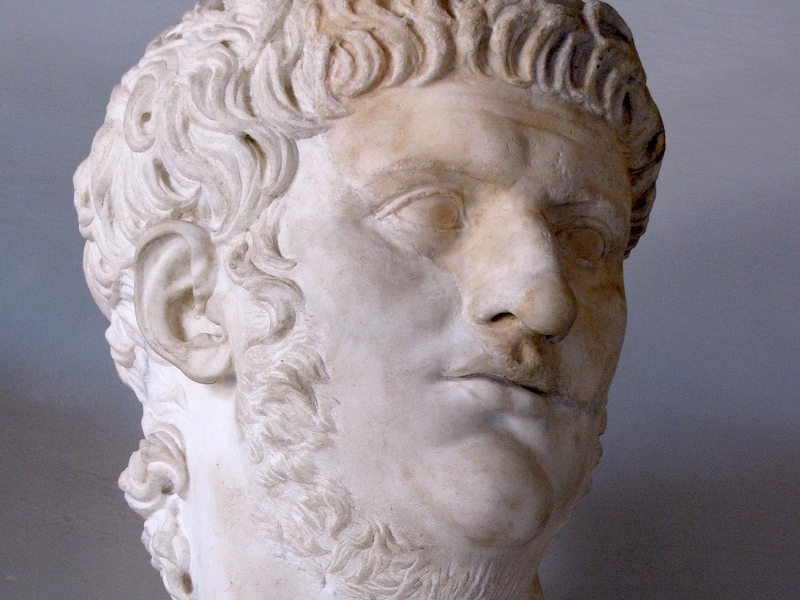Nero: The Artist of an Emperor
Episode #6 of the course The mad world of the Roman emperors by James Wareing
A man synonymous with the mad world of the Roman emperors was Nero, who reigned from AD 54-68. Like Caligula, he was an emperor who infuriated the elite yet garnered a lot of support from the people. Today, we will learn about how he became such a polarizing figure and why he is remembered as one of the wildest emperors.
The Start of His Reign
They say that behind every strong man there is a strong woman, and this was particularly apt for Nero. His mother, Agrippina, poisoned her husband, Claudius, in an attempt to ensure that her son (Claudius’s stepson) became emperor. Nero’s reign was thus destined for madness from the start. Nero eventually resolved to kill his mother, constructing a ship with a collapsible bottom to drown her. Comically, she survived this attempt at her life and later had to be beaten to death by Nero’s men. Familial murder was not limited to his mother but also included his step-brother, Britannicus, his pregnant lover, Poppaea (whom he kicked to death in a fit of rage), and his wife (executed on a trumped-up charge of adultery).
Nero wanted to be a man of the people, and his policies reflected this. Grain imports to Rome were aided by exempting merchant ships from property tax. Sufficient supplies of grain were pivotal for Rome, both to feed its rapidly increasing population and by doing so, to prevent discontent among the Plebeian class. Thus, Nero not only successfully fulfilled the basic needs of the people but also lessened the chance of civil unrest.
Nero the Eccentric Artist
He was rumored to have played the lyre while Rome burned in a great fire, murdered his family members, and built an ostentatious golden palace for himself on the remains of the ruined city. He would certainly be a tabloid’s dream today.
The physical description offered to us by historian Suetonius is a particularly unflattering one. He described him as “about average height, his body marked with spots and malodorous, his hair light blond, his features regular rather than attractive, his eyes blue and somewhat weak, his neck over thick, his belly prominent, and his legs very slender.” The Romans believed a lot could be read from your physical appearance, and this did not portend a mighty Roman emperor.
Nero had a love for the arts and in particular, performing music and poetry, both publicly and to the senate. For an emperor to lower his standing in such a way was shocking and embarrassing to the Roman elite, especially the older generation. He would apparently quote the Greek proverb to close friends: “Music made secretly wins no respect.” Such was Nero’s belief in his own ability and the fragility of his ego, his guards forced people to applaud in the theaters. There was even a story of a lady who gave birth in the theater, for fear of having to leave and insult Nero.
Foreign Policy Stability
While Nero may not have seemed like a typical military man and certainly was not, his foreign policy was a successful one. He brought peace to the previously troublesome region of Armenia, operating a policy of cooperation and diplomacy that quelled a long-time issue for the Roman empire.
Nero’s Death
In AD 68, Gallic and Spanish legions, as well as the Praetorian Guards, rebelled against Nero. He was declared a public enemy by the senate, and terrified, he escaped to his villa. Here, he killed himself with the help of his secretary, Epaphroditus. Accounts of Nero’s death portray him as cowardly, unable to stab himself and considering handing himself over as a suppliant to his enemies. A performer to the end, as he died, he repeated, “What an artist dies with me.” Rome certainly had lost an artist and a particularly eccentric emperor too.
Tomorrow, we shall learn about the chaos that ensued from an emperor who left no natural heir and if Rome returned to some sense of stability.
Learn Something New Every Day
Get smarter with 10-day courses delivered in easy-to-digest emails every morning. Join over 400,000 lifelong learners today!
Recommended book
The Confessions of Young Nero by Margaret George
Share with friends

